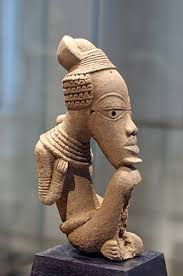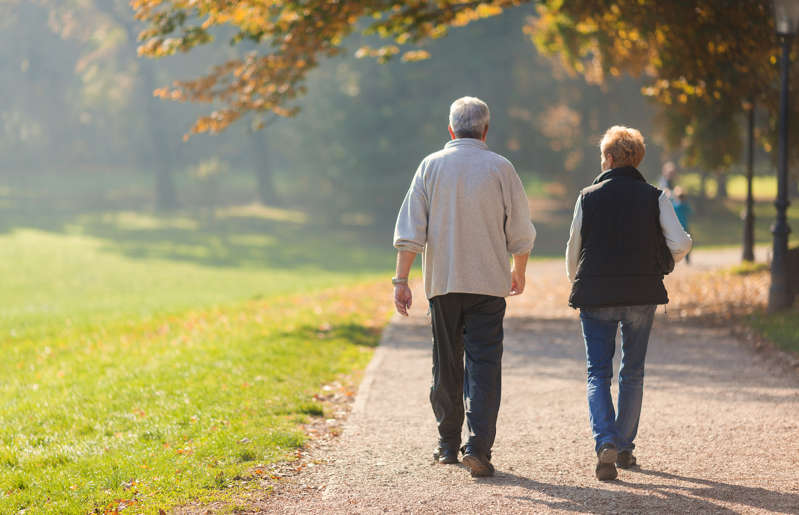Princess Charlene 'recognised she needed help' after royal family staged 'intervention'













Princess Charlene 'recognised she needed help' after royal family staged 'intervention'
Princess Charlene made her way back to Monaco in early November following nearly eight months in South Africa after she was grounded by an ear, nose, and throat infection. The Principality announced shortly after her return she would be seeking additional treatment away from Monaco due to fatigue and a need for "tranquility." According to expert Britney Barger, the royal agreed to seek additional treatment after being confronted by her family
The Royal Central expert said: "They basically had some sort of intervention with her brothers and sister-in-law and she recognised she needed help.
"Albert did say that the kids would be able to see her soon but there's been really no update, as usual, from the princely palace so we don't know if she'll be there for Christmas.
"She usually undertakes quite a few engagements around Christmas but I think it's safe to assume she won't be doing it this year."
Earlier this year, the palace announced Princess Charlene had to undergo repeated surgical treatment because of an unspecified ear, nose, and throat infection that forced her to remain in South Africa, where she had gone to visit family and undertake some engagements.
Prince Albert reassured the public Princess Charlene is not suffering from any "incurable" disease but needed time to fully recover from the taxing experience she had gone through.
charlene of monaco grimaldi health update
He told Paris Match: "She needs peace, rest, tranquillity, and appeasement.
"Everyone needs to understand that.
"I say it kindly: leave her alone, leave us alone for a while."
"The princess is not suffering from any serious or incurable disease.
"It is the consequence of all the operations she has undergone over the last few months."
Princess Charlene broke her silence on Friday as she shared a special message on her personal Instagram account to wish her twins a happy birthday.
Prince Jacques and Princess Gabrielle turned 7 on December 10, and they celebrated at the palace with a private celebration and personal cakes.
Writing on her social media account, Princess Charlene said: "Happy birthday to my babies.
"Thank you God for blessing me with such wonderful children.
"I'm truly blessed. Love mom."
Reference: Aurora Bosotti : Daily Express
A 10-minute at-home breathing exercise to rapidly help reduce stress















A 10-minute at-home breathing exercise to rapidly help reduce stress
Breathing exercises have long been recommended as an effective method for reducing stress and anxiety. Practising slower, deeper breaths can help to slow your heart rate and mimic a state of relaxation - and is also recommended by the NHS as a way to help ease the symptoms brought on by coronavirus.
An increasing number of people are suffering from prolonged effects of Covid-19, with one in 10 people surveyed still experiencing symptoms after 12 weeks - or, in many cases, far longer. This is known as Long Covid, or Post-Covid Syndrome, and symptoms are wide-ranging and fluctuating - from breathlessness and chronic fatigue, to 'brain fog', anxiety and stress, according to the NHS.
For those experiencing breathlessness and anxiety - either independently or as one as result of the other - it can be upsetting and alarming. But, the NHS advises that relaxed and gentle breathing exercises can help to manage and stabilise long-term breathlessness.
Richard Phibbs Whether you're worrying about Covid or simply need to take a moment for yourself
Somatic movement coach and yoga teacher Nahid de Belgeonne, founder of The Human Method, has had several clients attending her monthly breathing classes who have been recovering from Covid-19.
"Breathing exercises can help to reduce shortness of breath, improve lung capacity and manage respiratory complications," she explains, "and can also reduce negative impacts on your mental health".
If you're experiencing symptoms of Long Covid, de Belgeonne recommends "one to one sessions rather than classes, as the effects of Long Covid can vary from person to person".
The NICE guidelines for Long Covid sufferers are to avoid graded exercise (any exercise that increases in intensity), which means that general fitness classes should be avoided until you are clear of all symptoms.
"The very, very first thing that I teach everyone is to slow your breathing down," de Belgeonne says. "There's a particular frequency of breathing that can trigger a relaxation response within both the brain and the body, and it's six breaths per minute."
In the exclusive video above, de Belgeonne runs through some gentle breathing exercises that you can try from home to help rapidly reduce stress and self-regulate your emotions.
Reference: : Bazar: The Editors
The inconvenient truth about antidepressants













The inconvenient truth about antidepressants
Yes! I punched the air this morning when I read the news that doctors should stop routinely doling out antidepressants and offer patients therapy, meditation or exercise instead, according to new NHS guidance.
The National Institute for Health and Care Excellence (Nice) earlier this week ruled that patients with mild depression should be prescribed group therapy sessions before pills. The medical watchdog said: “Do not routinely offer antidepressant medication as a first-line treatment for less severe depression, unless that is the patient’s preference.”
Why is this good news for millions of us who, like me, have danced with depression for years? Because we are in danger of otherwise medicalising what Sigmund Freud called “ordinary human unhappiness”. The ups and downs of everyday life. As Luke Montagu, the co-founder of Evidence Based Psychiatry, a group of concerned academics, practitioners and patients who share evidence with policy makers on the harms of psychiatric drugs, says: “The reason this is so important is that we know that antidepressants are not very effective drugs and can cause serious side and withdrawal effects.”
Let me pause here. I am not talking about severe depression, and nor is Nice. I suffered from two severe depressive episodes in my 30s; suicidal, I was desperate for medication.
I was a reporter on a national newspaper with two small boys when depression struck out of the blue. I considered myself happy and blessed, though I was also anxious and at times overwhelmed by the pace of our lives. My job was demanding and so was my husband’s; he worked in financial services at the time. We were young, hard-working and permanently exhausted.
In three days, I went from feeling mildly anxious to being completely unable to function, screaming that I was “going to crash” and gripping my husband and mother for dear life. In the end I was ill for six months, during which time I spent a brief spell in hospital. I took a cocktail of drugs: antidepressants to calm me down (my kind of depression is less feeling low, more triggered by chronic anxiety); sleeping pills (I suffered from insomnia) and, briefly, anti-anxiety medication. I recovered, only to crash a few years later when I suffered a second major depressive episode.
Antidepressants can be very effective, but can also have powerful side-effects and withdrawal symptoms - iStockphoto
Antidepressants can be life-saving, literally. “Drugs have a role, especially for the seriously depressed, mainly to give individuals a breathing space to make changes in their lives or receive other support,” says Keith Leslie, chair of Samaritans.
But there are mounting concerns about the over-prescribing of the drugs: around 7.3 million people now take antidepressants, and prescriptions are disproportionately given out in areas of social deprivation, says Montagu. He also argues that drugs are given more to certain groups, including the elderly and women. The answer to many of our problems may be less a medical one than a societal one. Leslie agrees: “As a society, we need to not pretend we can treat our way out of our mental health crisis.”
There are three main problems with antidepressants: efficacy, potential side-effects and withdrawal symptoms. Efficacy is a controversial topic. Some studies – such as the Sequenced Treatment Alternatives to Relieve Depression (STAR*D) trial of 2006 – suggest that antidepressants are only marginally more effective than a placebo for mild depression. There is less certainty about how effective the drugs are for major depressive disorders.
I have experienced the side effects of antidepressants in multiple ways. My weight ballooned. My tongue was furred. I felt nauseous. Some also suffer sexual dysfunction. More serious effects can be increased suicidality, something the manufacturers themselves recognise. Depression sufferer Deidre Olson, 30, has borderline personality disorder, major depressive disorder and PTSD. She was prescribed the antidepressant Cipralex. “I regret taking 20mg of Cipralex for three years,” she says. “It messed up my metabolism, resulting in me dramatically gaining weight, caused me sexual dysfunction and I was unable to cry.”
After the loss of her 16-year-old daughter Jenny to suicide, 60-year-old Jenetta Bary went onto antidepressants for a couple of months. “It left me feeling deadened and woolly-headed,” she says, “as though I had lost the ability to manage myself and that something else had taken over.”
“We don’t really know the long-term consequences of taking the drugs,” says Montagu. “But what we do know is that it isn’t good to take any psychoactive drug, be it alcohol or opioids, over the long term. It can cause the brain to change and adapt.”
Thankfully, I haven’t experienced withdrawal. But in a 2019 study, Dr James Davies of the University of Roehampton’s Psychology department found that around 25 per cent of those taking antidepressants will have a severe withdrawal reaction.
Luckily, other approaches to managing mild depression and anxiety do work, many of which are already prescribed by those GPs and psychiatrists who don’t automatically reach for their prescribing pad.
Multiple studies attest to the efficacy of cognitive behavioural therapy (CBT), the therapy of choice on the NHS. Given the format of a six-week course, it could end up cheaper for the public purse than longer term use of antidepressants. There is bucket loads of research showing that mindfulness can prove highly effective, though Telegraph columnist and mental health advocate Bryony Gordon is sceptical: “Mindfulness and meditation are excellent tools to maintain mental wellbeing, but they are not solutions for mental illness, even ‘mild’ as said here,” she says.
More holistic methods are emerging. Nutritional psychiatry and the power of food to influence our mood is something I found powerful enough to write about in my book, The Happy Kitchen: Good Mood Food. Dr Carmine Pariante, professor of psychiatry at King’s College London, has been investigating the effect of omega-3s to help those suffering from mild to moderate depression. I have also found there is much to be said for the healing power of poetry, often as good as any self-help book. Such alternative approaches gave me back a sense of empowerment and agency. I could crack on and look after my psychological health without waiting to see my GP.
None of this lets the NHS off the hook, though. Talking therapy is great, but there’s a long queue. MIND estimates that 14 per cent of people wait for more than 12 weeks to be seen. “The lack of provision for talking therapy is why so many antidepressants get prescribed,” says Gordon. “There is simply nothing else to offer and GPs rightly don’t want to send patients away more dispirited than when they came in. We need proper and sustained NHS investment in mental health services of this kind.”
Those adopting exercise and mindfulness at a vulnerable period in their life will still need support. Leslie argues that the biggest challenge is building social capital: awareness within communities, families, faith groups, workplaces, schools and colleges. Mental illness does not happen in a vacuum, and we all have a role to play in developing a psychologically supportive society. Realising that antidepressants may not be the best answer to mild depression is one positive step in this direction.
Reference: The Telegraph: Rachel Kelly
Omicron symptoms: Seven early symptoms to spot and why they differ from the Delta variant













Omicron symptoms: Seven early symptoms to spot and why they differ from the Delta variant
As the world scrambles to contain the new variant, some are expressing initial relief on anecdotal reports from South Africa that it may cause only mild illness. With weeks ahead before scientists know more, what are the seven early symptoms reported in the omicron variant and why do they differ from the delta variant?
Dr Angelique Coetzee, chair of the South African Medical Association, first raised the alarm regarding the new strain.
She said the COVID-19 symptoms linked to Omicron have been "extremely mild".
Speaking to the BBC on Sunday, November 28, Dr Coetzee discussed how she saw a patient who presented unusual symptoms which differed from those associated with the Delta variant - the most globally dominant strain at present.
She explained that a male patient, around the age of 33, told the doctor he was "extremely tired for the past few days".
She added that patient didn't have a sore throat but described it as a "scratchy throat".
Symptoms pertaining to the Omicron strain, can include:
- Extreme fatigue
- Fever
- Body aches
- Headache
- Night sweats
- Runny nose
- Scratchy throat.
mild. "We are seeing patients present with a fever, night sweats and a lot of body pains," he said.
Patients presenting with Omicron symptoms also did not have a persistent cough or loss of taste or smell - symptoms commonly associated with previous strains of COVID-19.
One reason for such different symptoms compared to the Delta variant could be due to changes in the way the virus interacts with the immune cells.
Many common symptoms of illness, such as fever or a runny nose, are primarily caused by our immune responses to infections rather than direct damage by viruses or bacteria.
Differences in our immune responses may also explain why two individuals don't necessarily experience the same symptoms if infected with the same virus or variant.
The World Health Organisation (WHO) has said it will take weeks to understand how the variant may affect diagnostics, therapeutics and vaccines.
Omicron symptoms: Seven signs
Dr Coetzee's initial observations are only based on a very small number of cases and experts are worried about Omicron's large number of mutations.
Preliminary evidence suggests the strain has an increased risk of reinfection, according to the WHO.
Daily case numbers for Covid in the UK have been rising since early November.
This Saturday two cases of the new Omicron variant were reported in the UK.
Travel restrictions have been expanded to include several South African countries where the new variant is known to be found.
People known to be infected, and their families, have been put into isolation.
Reference: Daily Express: Jessica Knibbs
Articles - Most Read
- Home
- LIVER DIS-EASE AND GALL BLADDER DIS-EASE
- Contacts
- African Wholistics - Medicines, Machines and Ignorance
- African Wholistics -The Overlooked Revolution
- African Holistics - Seduced by Ignorance and Research
- The Children of the Sun-3
- Kidney Stones-African Holistic Health
- The Serpent and the RainBow-The Jaguar - 2
- PART ONE: DIS-EASE TREATMENT AND HEALTH-3
- 'Tortured' and shackled pupils freed from Nigerian Islamic school
- King Leopold's Ghost - Introduction
- PART ONE: DIS-EASE TREATMENT AND HEALTH-4
- PART ONE: DIS-EASE TREATMENT AND HEALTH-2
- PART ONE: DIS-EASE TREATMENT AND HEALTH-5
- African Wholistics - Medicine
- Menopause
- The Black Pharaohs Nubian Pharaohs of Ancient Egypt
- The Mystery System
- PART ONE: DIS-EASE TREATMENT AND HEALTH-6
Who's On Line?
We have 71 guests and no members online
Ad Agency Remote
Articles - Latest
- The Male G Spot Is Real—and It's the Secret to an Unbelievable Orgasm
- Herbs for Parasitic Infections
- Vaginal Care - From Pubes to Lubes: 8 Ways to Keep Your Vagina Happy
- 5 Negative Side Effects Of Anal Sex
- Your Herbs and Spices Might Contain Arsenic, Cadmium, and Lead
- Struggling COVID-19 Vaccines From AstraZeneca, BioNTech/Pfizer, Moderna Cut Incidence Of Arterial Thromboses That Cause Heart Attacks, Strokes, British Study Shows
- Cartilage comfort - Natural Solutions
- Stop Overthinking Now: 18 Ways to Control Your Mind Again
- Groundbreaking method profiles gene activity in the living brain
- Top 5 health benefits of quinoa
- Chromolaena odorata - Jackanna Bush
- Quickly Drain You Lymph System Using Theses Simple Techniques to Boost Immunity and Remove Toxins
- Doctors from Nigeria 'facing exploitation' in UK
- Amaranth, callaloo, bayam, chauli
- 9 Impressive Benefits of Horsetail
- Collagen The Age-Defying Secret Of The Stars + Popular Products in 2025
- Sarcopenia With Aging
- How to Travel as a Senior (20 Simple Tips)
- Everything you need to know about mangosteen





